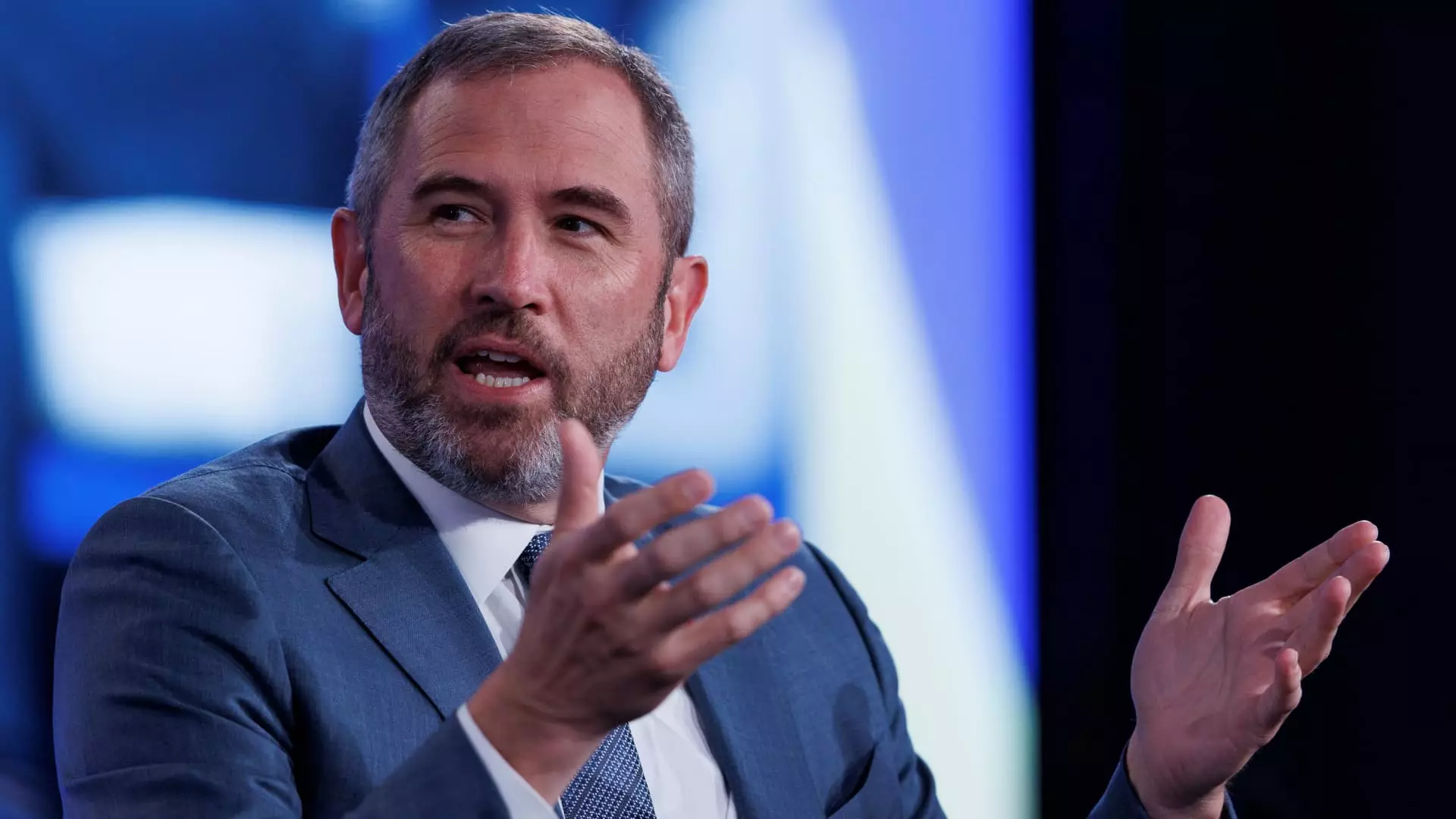The landscape of cryptocurrency regulation in the United States has been tumultuous, eliciting skepticism from prominent figures in the industry. Brad Garlinghouse, CEO of Ripple Labs, has been publicly critical of the regulatory environment, yet he shared an optimistic outlook on the future during his appearance at DC Fintech Week. With the upcoming election, Garlinghouse anticipates a shift in Congress that could foster a more favorable environment for crypto innovation and adoption.
Garlinghouse described the upcoming election as crucial, emphasizing its potential significance for the crypto sector. During his conversation with CNBC, he confidently asserted that regardless of the election outcome, the next Congress is likely to be more aligned with pro-crypto sentiments than any previous sessions. This assertion highlights a growing awareness among policymakers regarding the need to embrace technological advancements and innovative financial solutions.
Ripple Labs, recognized for its pioneering role in the crypto ecosystem and its association with the XRP token, primarily operates as a global payments hub, catering to banks and financial institutions. Remarkably, nearly 95% of Ripple’s business is conducted internationally, indicating that the U.S. regulatory climate has compelled many companies to seek opportunities abroad. Garlinghouse attributes this departure from the U.S. market partly to the ongoing challenges posed by regulatory bodies, particularly the U.S. Securities and Exchange Commission (SEC), which filed a lawsuit against Ripple in 2020.
In a pivotal moment for the industry, a recent court ruling determined that XRP does not qualify as a security when marketed to retail investors, creating a significant precedent. This legal victory has instilled a sense of hope among crypto enthusiasts and firms alike, confirming the viability and legitimacy of crypto assets in the eyes of the judiciary. Garlinghouse conveyed a broader sentiment of optimism for the industry’s trajectory, asserting that skeptics of its potential to rebound are overlooking the foundational strength and resilience of the sector.
Ripple’s commitment to bolstering pro-crypto initiatives is evident in its substantial financial backing of political action committees. With donations exceeding $45 million to Fairshake and significant contributions to political candidates like Vice President Kamala Harris, the company is actively engaging in the political discourse surrounding cryptocurrency regulation. Garlinghouse’s choice of attire—a purple tie—during his recent interview also underscored his intent to communicate the importance of bipartisan collaboration in fostering a conducive environment for crypto-related activities.
As discussions around cryptocurrency continue, sentiments within the industry have grown increasingly polarized, creating an atmosphere of partisan division. Garlinghouse pointed to the contrasting approaches of political candidates regarding crypto regulation. He remarked on Trump’s aggressive pro-crypto stance and highlighted the more measured responses from the Harris campaign, which have left some in the crypto community anxious about the future regulatory landscape.
Most notably, Garlinghouse has expressed concern that continued leadership under the Biden administration could lead to prolonged regulatory challenges, which he referred to as an “attack” on the crypto sector. He highlighted the adverse stance of various regulatory agencies, including the Treasury and the Office of the Comptroller of the Currency, toward crypto businesses. Such sentiments resonate with industry insiders who believe that banks may shy away from collaborating with crypto firms due to perceived hostility from the government—a phenomenon Garlinghouse describes as “Operation Chokepoint 2.0.”
Despite not endorsing any presidential candidates, Garlinghouse’s support for John Deaton—an attorney seeking to challenge the regulatory status quo represented by Senator Elizabeth Warren—reflects a broader call for advocates within the political sphere to champion crypto interests. Warren’s past critiques of the industry underscore a growing imperative for thoughtful dialogue and constructive oversight over punitive regulations.
In this climate of uncertainty, Garlinghouse remains steadfast in his belief that, irrespective of the immediate challenges, the industry is poised for progress. He acknowledges that the path to regulatory clarity may be fraught with hurdles but ultimately underscores a collective commitment to pushing for a robust and progressive framework that supports innovation without stifling growth. The narrative surrounding cryptocurrency in the U.S. is evolving, and the upcoming election presents an opportunity for change that could reshape the landscape for years to come.
With the election on the horizon, the engagement of crypto leaders in political discourse underscores the necessity of a well-informed and responsive regulatory framework that strikes a balance between oversight and innovation. As the industry navigates these turbulent waters, the collective vision remains clear: a future where cryptocurrency is integrated harmoniously into the global financial ecosystem. The crystal ball may be cloudy, but the optimism surrounding the crypto sector remains unyielding.

Leave a Reply